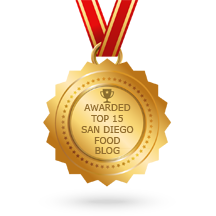To Market for Organic? Be Sure to Read the Label
My friend Julie Gelfat just shared this video with me about the questionable promotion of some of Whole Foods 365 brand "organic" products, which it turns out came from China. The story was produced a couple of years ago by WJLA, an ABC affiliate. But even now, if you look at the Whole Foods website, you'll find a page that explains their sourcing and defends their practice of buying from China:
"We only discriminate when it comes to quality and taste, not country of origin.
Whole Foods Market continues to buy from China because we believe in supporting farmers that provide high quality products.
- Our strategy is not to run away from our Chinese suppliers, but to take a stand and get closer to our suppliers. We will continue to improve on the audit and testing procedures that are already in place.
- Organic farming has a long history in China.
- Our strategy is to build long term partnerships with our Chinese suppliers.
- We are confident in the quality and integrity of our products from all countries, including China."
Take a look:
Print Page












This does not surprise me. Then owner of Whole Foods is a right wing nutcase. Money is the bottom line.Sad, but true.
ReplyDeleteThis issue isn't limited to Whole Foods, either, so it was a bit unfair of the report to pick on WF exclusively. All the big box stores import a large portion of their "organic" food products, as do conventional supermarkets, such as Von's/Safeway's O brand. Sometimes it's due to cost issues, and sometimes due to the public's expectation that seasonal items be available perpetually.
ReplyDeleteThe organic label is really quite diluted now and shouldn't be reassuring as it has become as it has "gone mainstream". Frankly, I don't blame WF on this issue - too many people have become sheeple who fail to use critical thinking skills when it comes to food. WF is going to exploit people's cluelessness just like other corporations do. Why should anyone expect differently?
I hate to say it, but the vast majority of shoppers are incredibly tuned out when it comes to the origin and production of their foods, despite their sincere belief and proclamations to the contrary. I can't tell you how often someone proudly offers me something to eat or drink while gushing "and it's organic!" like that negates the CAFO, industrial processing, or out-of-season long distance origins (btw, I do usually mind my Ps & Qs in these instances and refrain from lecturing, though I bite my tongue hard sometimes ;-).
In discussions, someone always says, "but who has time to check out every little thing - I don't!". Hmmm, it doesn't take much time to source organic produce from a local CSA, in fact it can save time compared driving to the store, walking the aisles, standing in the checkout line, and so on.
"Food with a face" such as bulk buying from local farmers and ranchers is generally likely to really be what it is purported to be, because there is much less of a gap between the consumer and the producer (of course, roadside stands and FMs aren't always local food, but at least there is someone to ask face-to-face). CEOs aren't very in touch with their customers, rather they have their fingers on the pulse of "market demographics".
I care a lot about country of origin, and always check to see if products are coming from a local source (or at minimum, the US). I stopped buying some organic products from Henry's because they were from China.
ReplyDeleteThe organic designation is very important to me, but so is local food. There's a balance to strike and sometimes that means that I can't have the ingredient I want when I want it. But that's a reality I think we all need to get comfortable with in the interest of a healthier food environment.